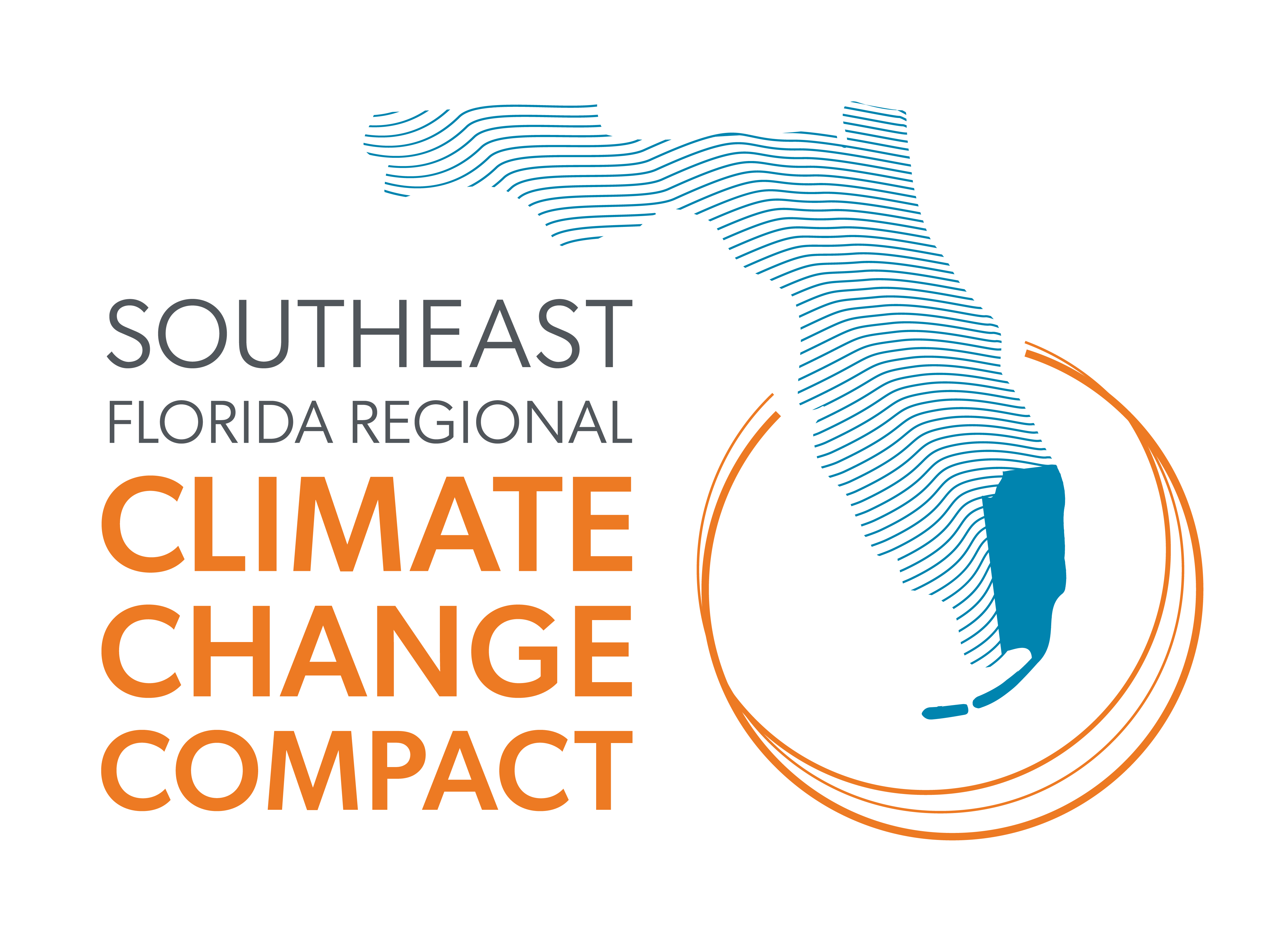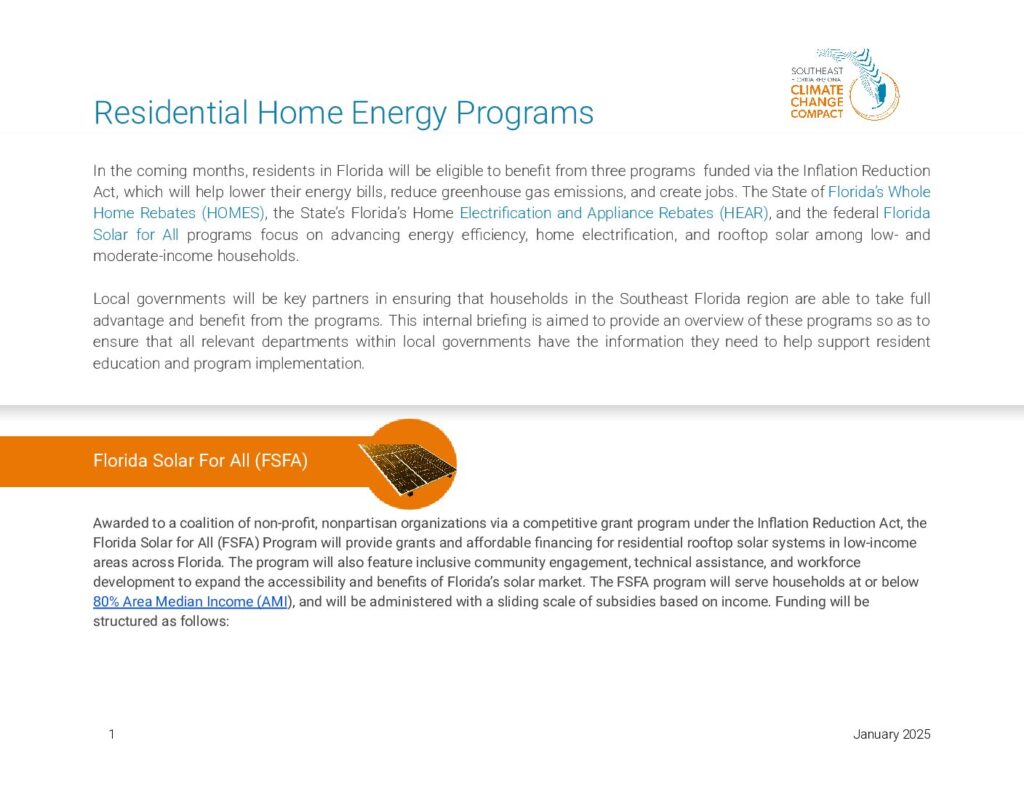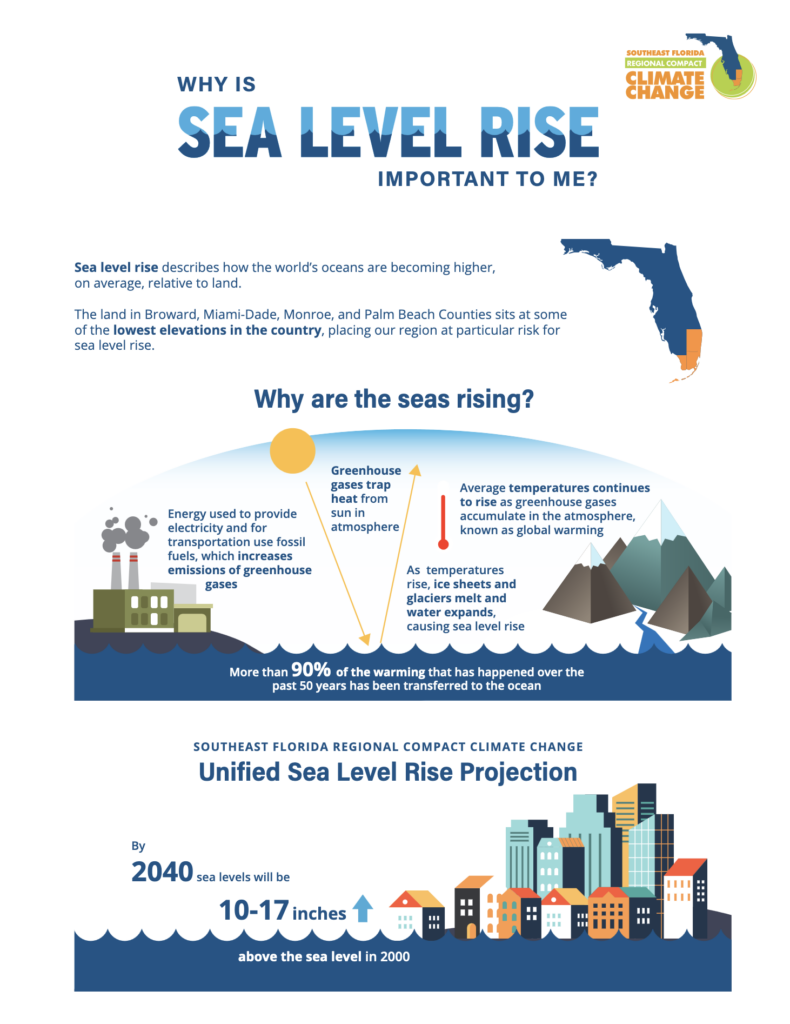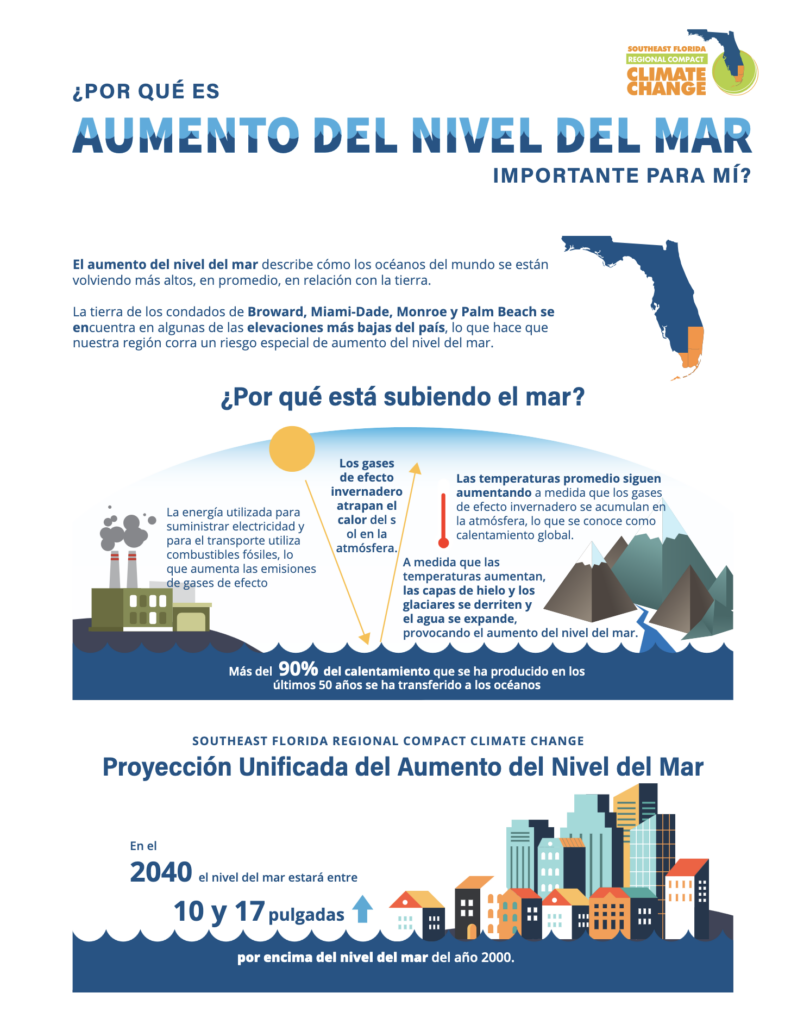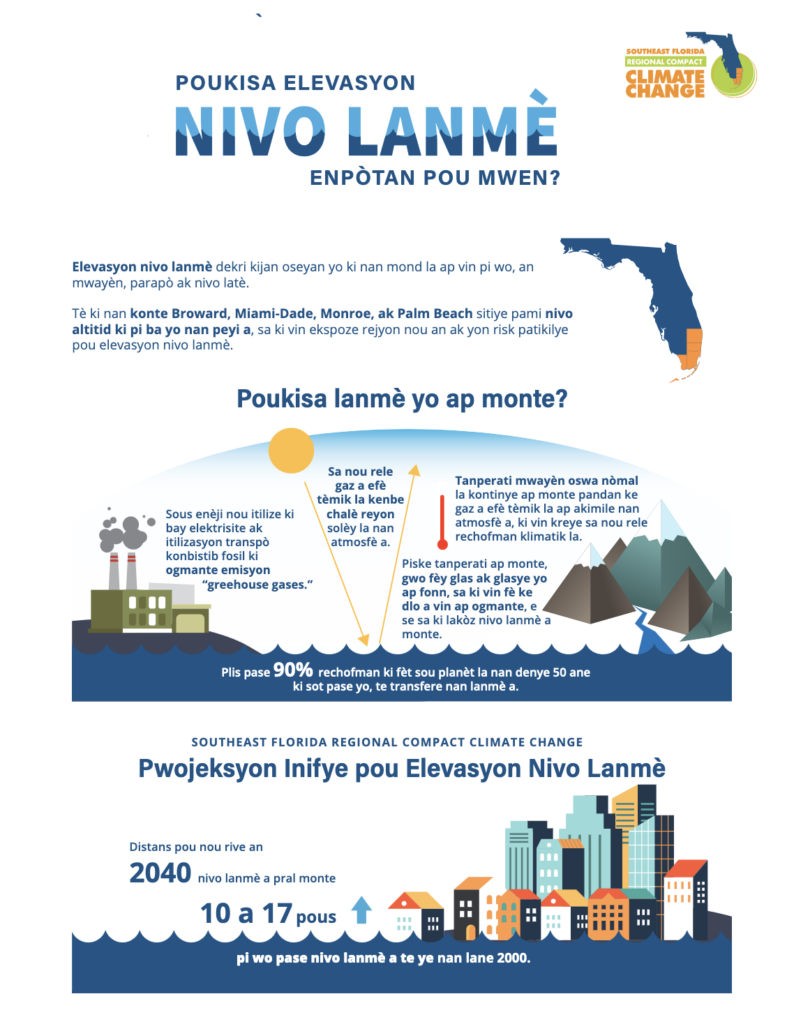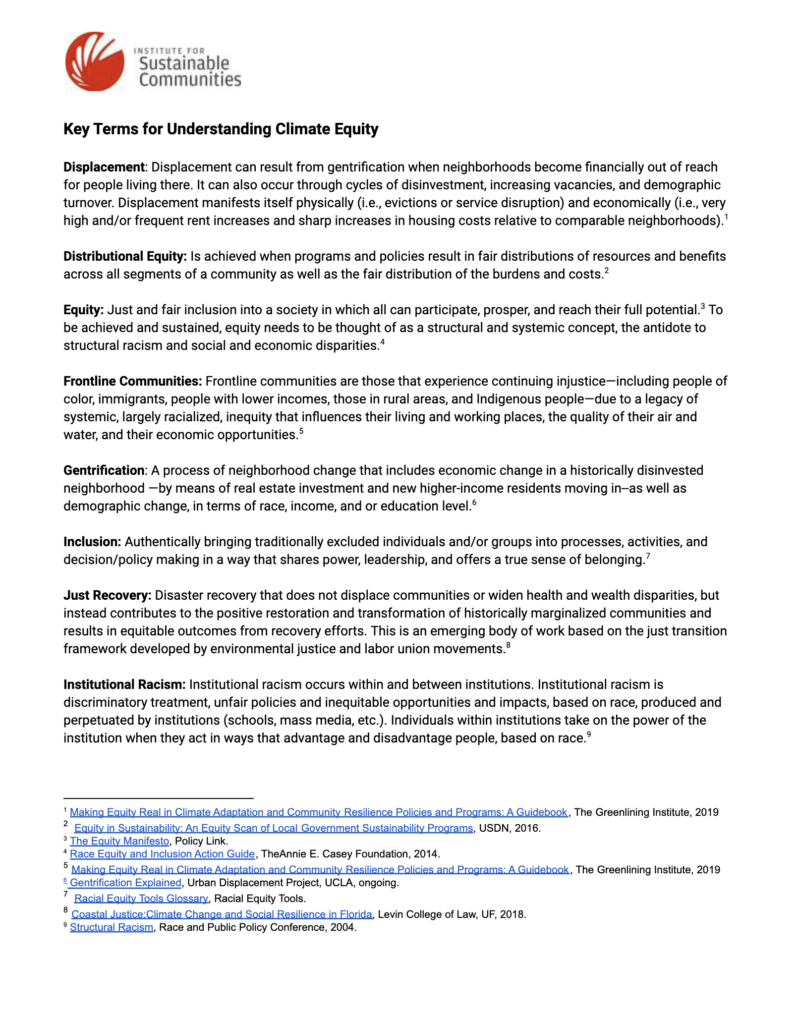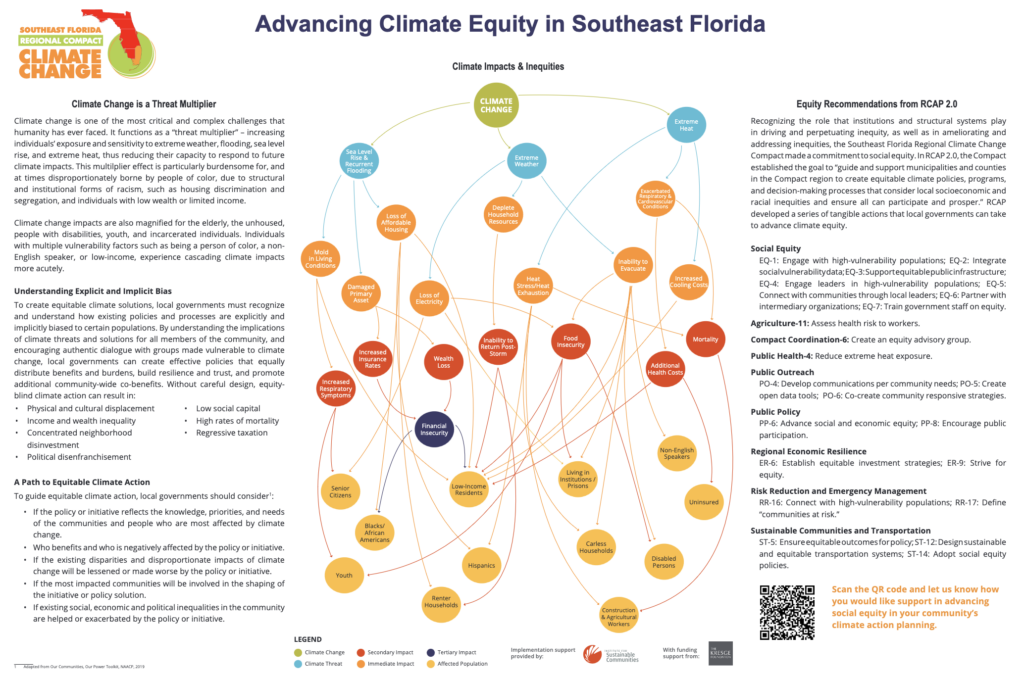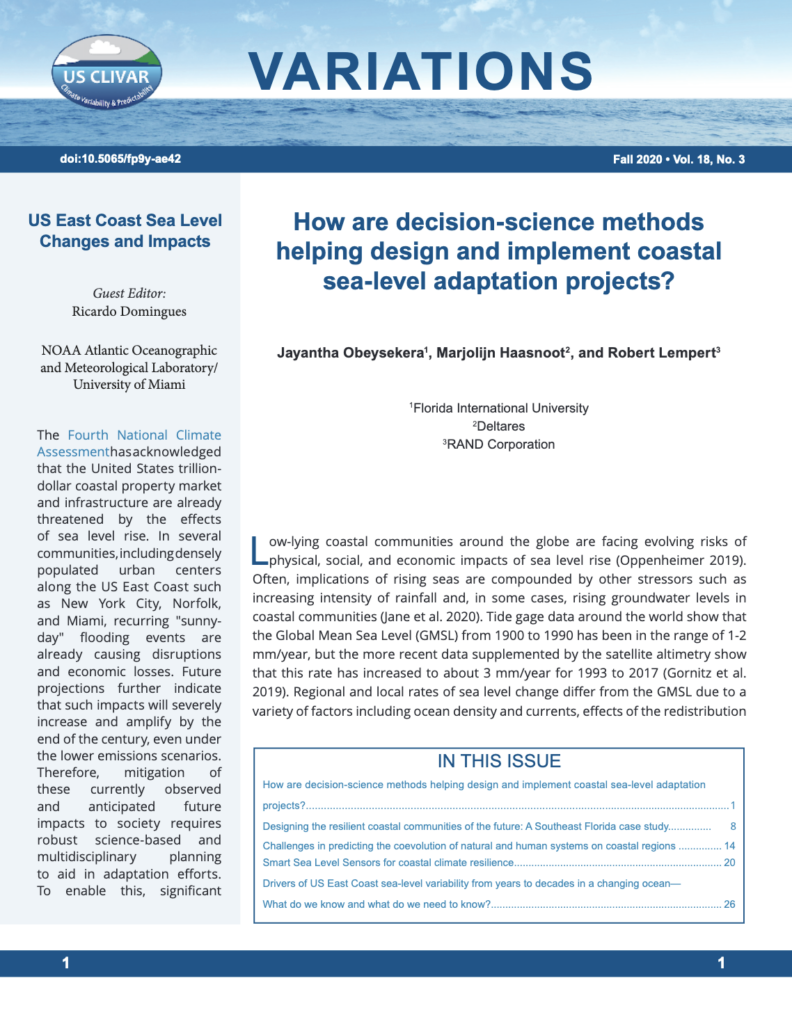
Communications Resources
The following communications documents support climate practitioners in outreach and engagement activities.
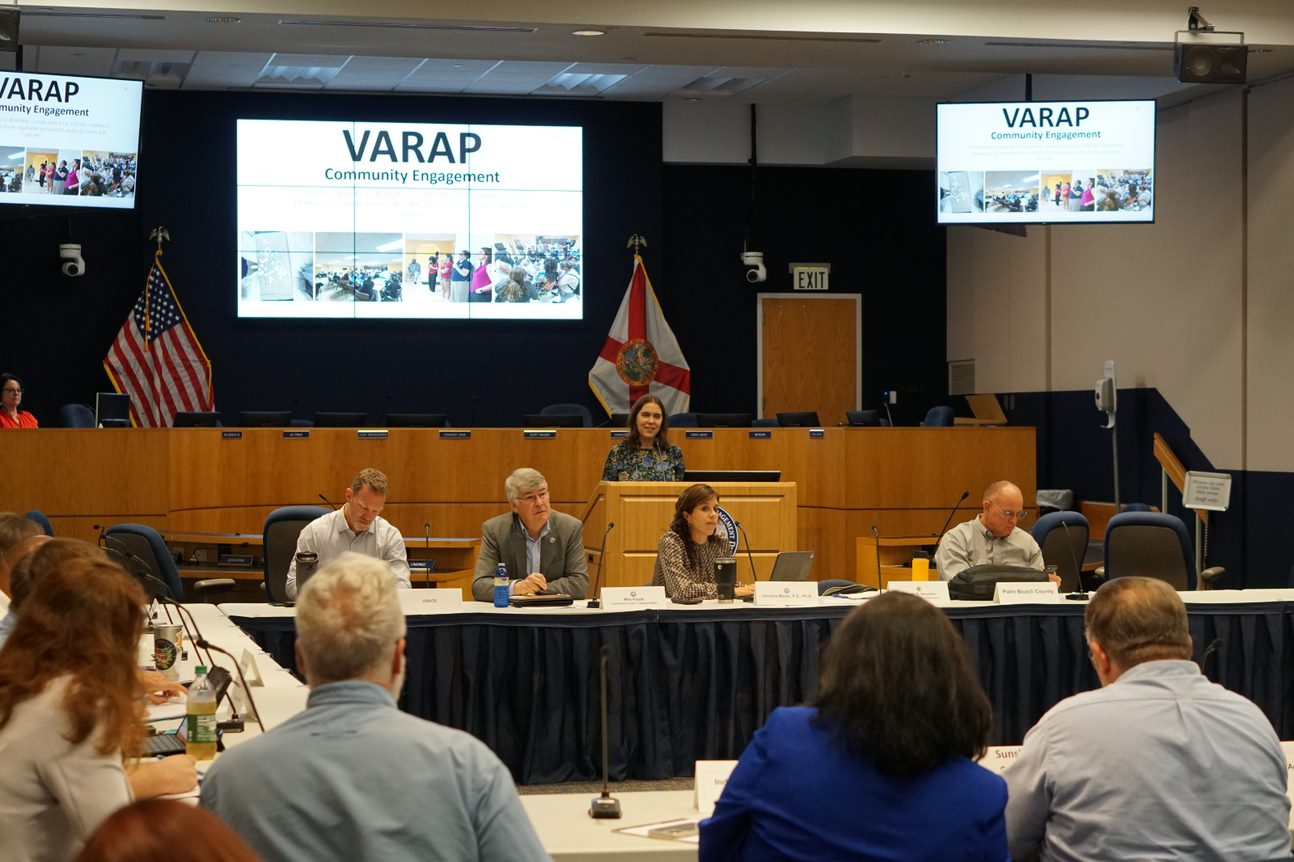
Residential Home Energy Programs
In the coming months, Floridans will be eligible to benefit from three residential home energy programs funded via the Inflation Reduction Act, which will help lower their energy bills, reduce greenhouse gas emissions, and create jobs. The State of Florida’s Whole Home Rebates (HOMES), the State’s Florida’s Home Electrification and Appliance Rebates (HEAR), and the federal Florida Solar for All programs focus on advancing energy efficiency, home electrification, and rooftop solar among low- and moderate-income households. This briefing document provides an overview of these opportunities to support resident education and program implementation.
Why Is Sea Level Rise Important To Me?
The Compact is pleased to share its newly developed resource, Sea Level Rise: Why is it Important to Me? The resource is available in English, Spanish and Creole. It provides support to local partners, community-based organizations, advocates, HOAs, and the general public in understanding what sea level rise is, what impacts it has on health, safety, infrastructure and wellbeing, and what can be done to address it.
¿Por qué es aumento del nivel del mar importante para mί?
El aumento del nivel del mar describe cómo los océanos del mundo se están volviendo más altos, en promedio, en relación con la tierra.
La tierra de los condados de Broward, Miami-Dade, Monroe y Palm Beach se encuentra en algunas de las elevaciones más bajas del país, lo que hace que nuestra región corra un riesgo especial de aumento del nivel del mar.
Poukisa elevasyon nivo lanmè enpòtan pou mwen?
Elevasyon nivo lanmè dekri kijan oseyan yo ki nan mond la ap vin pi wo, an mwayèn, parapò ak nivo latè.
Tè ki nan konte Broward, Miami-Dade, Monroe, ak Palm Beach sitiye pami nivo altitid ki pi ba yo nan peyi a, sa ki vin ekspoze rejyon nou an ak yon risk patikilye pou elevasyon nivo lanmè.
RCAP Implementation Resources: Glossary of Equity Terms
This glossary provides definitions of key terms to support an understanding of climate equity.
RCAP Implementation Resources: Climate Equity Poster
This poster was created for the Southeast Florida Regional Climate Change Compact’s 11th Annual Climate Leadership Summit poster session. It examines vulnerabilities to climate change from an equity lens.
US CLIVAR Variations: Designing the resilience coastal communities of the future: A Southeast Florida case study
The Southeast Florida Regional Climate Change Compact published an article on Designing the resilient coastal communities of the future: A Southeast Florida case study (pages 8-13), as part of the 2020 fall edition of the US CLIVAR Variations on US East Coast Sea Level Changes and Impacts. This publication highlights some of the leading edge work that is being advanced by practitioners and decision makers to improve coastal resilience to sea level rise. The Variations is a non-peer reviewed publication for the ocean and climate science community that focuses on timely research questions and activities.
